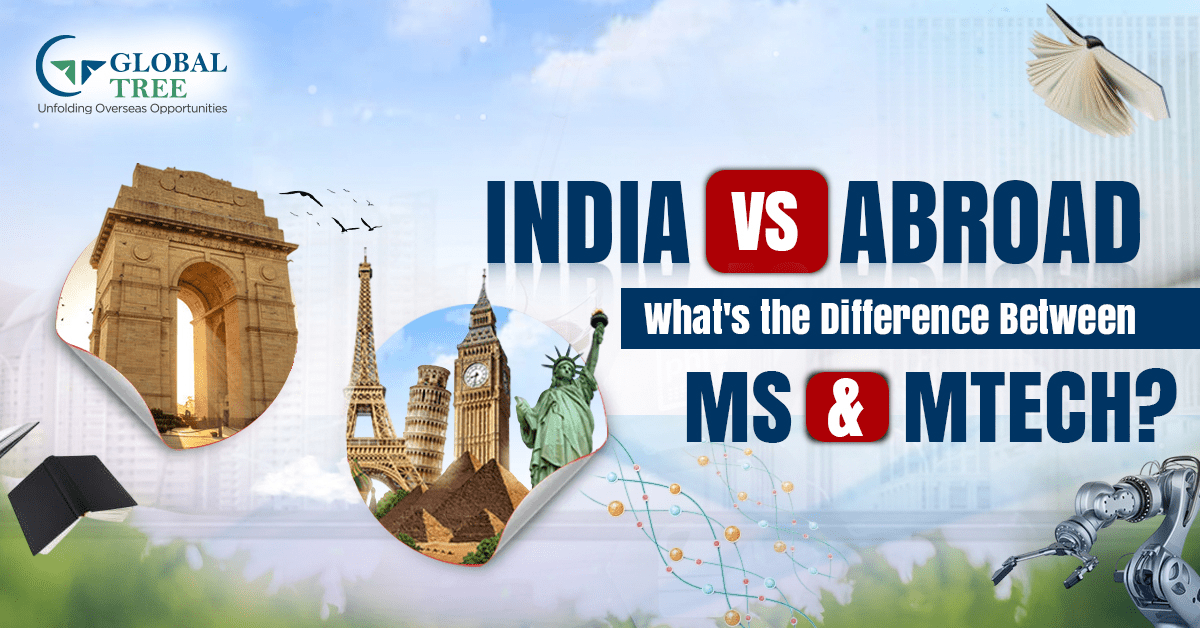Duolingo vs. IELTS: Which English Proficiency Test Is Right for You?

Introduction
For people who want to study or work abroad, picking the right English language test is very important. The International English Language Testing System (IELTS) and the Duolingo English Test have become popular picks over the past few years. This blog post will go into great detail about these two tests, including who runs them, what they're used for, how they're formatted, how long they last, how they're scored, how much they cost, who can take them, how long they're good for, how hard they are, and how the results are announced. In addition, we will talk about the forms of both tests, the levels of difficulty, and compare scores.
The last part of this article will talk about well-known colleges that accept both IELTS and Duolingo scores. This will help you choose the best language test.
Overview: Duolingo vs. IELTS
It is important to know the main differences between the IELTS and Duolingo tests so that you can make an informed choice.
(Read More: How to master the IELTS exam in 90-days?)
| Details | Duolingo | IELTS |
|---|---|---|
|
Conducting body |
Duolingo, Inc. |
British Council and IDP IELTS |
|
Purpose |
to help users learn a language |
to assess the English language ability of non-native English speakers. |
|
Format |
computer-based test |
paper-based and computer-delivered |
|
Structure |
Adaptive Section & Video Interview Section |
Listening, Reading, Writing and Speaking Section |
|
Duration |
45 minutes |
2 hours and 45 minutes |
|
Scoring |
skill level ranges from A1 (beginner) to C2 (advanced) |
scale from 0 to 9 |
|
Fees |
$49 |
$150 to $200 |
|
Validity period |
Unlimited |
two years |
|
Difficulty level |
Easier than IELTS |
Difficult than IELTS |
|
Result declaration |
Immediately available |
13 days after the test |
IELTS vs. Duolingo: Who conducts the test?
IELTS: The International English Language Testing System is jointly owned by the British Council, IDP: IELTS Australia, and Cambridge Assessment English. These organizations collaborate to administer and manage IELTS worldwide. The rich history and established reputation of these organizations contribute to IELTS' credibility.
Duolingo: The Duolingo English Test is developed and administered by Duolingo Inc., a renowned language-learning platform. This innovative test can be taken online, making it more accessible and convenient for test-takers. Duolingo's expertise in language education is a driving force behind the test's unique format and scoring.
IELTS vs Duolingo: Which exam to choose?
IELTS: IELTS is mostly for people who want to move to an English-speaking country to learn, work, or study. The test measures how well a person can converse in English. The Academic version is for people who want to go to college, and the General Training version is for people who want to move and study abroad or start working.
Duolingo: The Duolingo English Test does the same thing; it checks how well someone speaks English for academic and professional reasons. Duolingo is a flexible choice whether you're a student trying to get into college or a worker trying to improve your job chances.
[If you are Looking for: A Complete Guide to Study in USA, Check here]
Format of IELTS vs Duolingo
IELTS: The two main types of IELTS tests are IELTS Academic and IELTS General Training. The Academic version is for people who want to go to college, and the General Training version is for people who want to move to the United States or find work. There are four parts to each format: speaking, reading, listening, and writing. The Speaking part of the IELTS is done in person with a teacher.
Duolingo: Duolingo is a computer-based test that checks the same language skills: reading, writing, listening, and speaking. The style is all digital and can be taken online, which gives test-takers more options. People who are good with technology really like how Duolingo is set up.
IELTS vs Duolingo: What is the Duration of the Exam?
IELTS: The Academic and General Training versions of the IELTS test last a little longer or shorter. It takes 2 hours and 45 minutes to finish the Listening, Reading, and Writing parts. The Speaking section is done separately and usually takes about 15 minutes. People who like talking to real people might find that the fact that the IELTS Speaking part is face-to-face an advantage.
Duolingo: The Duolingo English Test typically takes around 45 minutes to complete, making it a quicker option compared to IELTS. The entire test can be completed in one sitting from the comfort of your own home, eliminating the need for multiple test appointments.
IELTS Vs Duolingo: How is Score Calculated?
IELTS: You can get a score on the IELTS from 0 to 9, and depending on the number of correct answers in the exam, you can calculate your own IELTS bands score. There are separate scores for each section, and the total number is the average of these scores. For example, a band score of 6.5 means that you know how to speak and write English pretty well. The IELTS has a very detailed scoring method that lets you get a full picture of your language skills.
Duolingo: Duolingo provides a score on a scale from 10 to 160. The higher the score, the higher the English proficiency level. Duolingo's scoring system is straightforward, and it's easy to understand how well a test-taker performed. The wider scoring range of Duolingo allows for more granularity in evaluating proficiency.
Eligibility Criteria for IELTS Vs Duolingo
IELTS: There are no specific eligibility criteria for taking the IELTS test. Anyone can register and take the exam, regardless of their age or educational background. The inclusivity of IELTS makes it accessible to a wide range of test-takers.
Duolingo: Similarly, the Duolingo English Test is open to all individuals and does not have strict eligibility criteria. This accessibility aligns with Duolingo's mission to provide convenient language assessment options.
How much does it Cost: IELTS Vs Duolingo
IELTS: While the exact price of the IELTS test changes from country to country, it can be anywhere from $200 to $250*. Even though IELTS is accepted all over the world, it may cost more.
Duolingo: If you want to save money, Duolingo is a better choice. The test fee is usually $49*. Individuals who want to save money on the test but still get a good language score can register for the Duolingo exam.
Score Validity Period for IELTS Vs Duolingo
IELTS: Most IELTS scores are good for two years after the test date. The marks might not be accepted by schools or immigration officials after this time. People who take the IELTS test have a good amount of time to use their scores.
Duolingo: Duolingo scores are also usually valid for two years, which is in line with IELTS. This consistency allows test-takers to plan their educational or professional journeys with confidence.
Result Declaration for IELTS Vs Duolingo
IELTS: People who take the IELTS test usually get their scores online 13 days after the test. The Speaking part can happen a few days before or after the main test, and the results are usually made public on the same day as the results from the other sections. The planned release of results gives test-takers a clear idea of when they need to submit their applications.
Duolingo: Duolingo provides quick results, often within 48 hours of completing the test. This rapid turnaround can be advantageous for individuals with tight application deadlines. The speed of result delivery aligns with Duolingo's emphasis on convenience.
Difficulty Level of IELTS Vs Dulingo
IELTS: IELTS exam is known for its challenging content, especially in the Academic version. It assesses test-takers at different language proficiency levels, from beginner to advanced. The varying complexity of IELTS ensures that individuals are evaluated according to their actual language skills.
Duolingo: The Duolingo English Test is considered to be slightly more user-friendly and less intimidating. Its format is more modern and user-oriented, making it accessible to a broad range of test-takers. While Duolingo maintains a high standard of assessment, its digital nature may be less intimidating to some.
Duolingo vs IELTS- Format of the Exam
Now that we've talked about the big differences between IELTS and Duolingo, let's look at how each test is set up.
Format of Duolingo
The Duolingo English Test is a computer-based exam that can be taken from the comfort of your own home. The test is divided into four sections:
Speaking: People taking the Speaking part have to speak into the microphone on their computer. Some of the things they do and responses they give test their spoken speaking skills. This part is digital, which makes it easy to test your speaking skills.
(Read More: Why should you take Duolingo Coaching?)
Writing: Takers' ability to write answers is tested in the Writing section. Some tasks might be to write short articles, solve problems, or write summaries. This part tests your written communication, which is an important skill for school and the job.
Reading: The Reading part tests how well a person can understand and think about what they've read. They might have to answer questions and show that they understand what the book says. The Reading piece is a very important part of testing language understanding.
Listening: This part of the test checks how well a person understands spoken English. They listen to tapes and answer questions about what they hear. Listening is a basic language skill, and the fact that this part is digital makes sure that it is graded correctly.
Format of IELTS
The IELTS exam offers two main formats, Academic and General Training, both of which consist of four sections:
[Check out: Complete Syllabus of IELTS Academic Test]
Listening: People take this part of the test by listening to records and answering questions about what they hear. The audio recordings in the Academic and General Training versions are different because they are meant for different reasons. Listening skills are important for both school and everyday life.
Reading: This part of the test checks how well a person can understand written English. It has different kinds of texts in it, like essays, reports, and stories. This part tests your ability to read and understand what is written.
Writing: This part of the test checks how well a person can explain themselves in writing. Write an essay, a letter, or a report, based on the format given. Writing well is important for both schoolwork and business correspondence.
Speaking: The Speaking part is a chat with a test administrator in person. The purpose of the IELTS Speaking test is to see how well the person can converse verbally. The IELTS Speaking part is interactive and easy to score if you follow certain tips. People taking the test talk about different topics, give short speeches, and talk with the judge.
IELTS vs Duolingo- Proficiency Level
Now, let's explore the proficiency levels assessed by both IELTS and Duolingo.
IELTS Proficiency Level
IELTS assesses individuals at various proficiency levels, ranging from low (Band Score 1) to high (Band Score 9). Here is a general breakdown of these levels:
● Band Score 1-2: Non-user
● Band Score 3: Intermittent user
● Band Score 4-5: Limited user
● Band Score 6: Competent user
● Band Score 7-8: Good user
● Band Score 9: Expert user
(Read More: What is the role of Grammar in IELTS exam?)
Duolingo Proficiency Level:
Duolingo's scoring system ranges from 10 to 160, with higher scores indicating higher proficiency levels. The following is a rough equivalence of Duolingo scores to common English language proficiency assessments:
● Duolingo Score 10-40: Beginner
● Duolingo Score 41-70: Elementary
● Duolingo Score 71-100: Intermediate
● Duolingo Score 101-140: Advanced
● Duolingo Score 141-160: Expert
IELTS vs Duolingo Score Comparison
This chart shows how scores on Duolingo and IELTS are roughly equivalent. It will help you understand how the two tests differ. Keep in mind that this is just a rough guide, and each school may have its own unique score requirements.
● Duolingo Score 10-40: Equivalent to IELTS Band Score 1-2
● Duolingo Score 41-70: Equivalent to IELTS Band Score 3
● Duolingo Score 71-100: Equivalent to IELTS Band Score 4-5
● Duolingo Score 101-140: Equivalent to IELTS Band Score 6
● Duolingo Score 141-160: Equivalent to IELTS Band Score 7-9
[Read More: Experts Tips to Crack High Score on Duolingo]
| Duolingo Score | => | IELTS Band |
|---|---|---|
|
10 - 40 |
=> |
1 - 2 |
|
41 - 70 |
=> |
3 |
|
71 - 100 |
=> |
4 - 5 |
|
101 - 140 |
=> |
6 |
|
141 - 160 |
=> |
7 |
This equivalence chart serves as a general reference and can be used to gauge your proficiency level across different exams.
Popular Universities Accepting IELTS and Duolingo
Many colleges around the world accept scores from both the IELTS and Duolingo as proof that you can speak and write English well. These test scores are accepted by the following well-known organisations:
Universities Accepting IELTS Scores
● Harvard University, USA: One of the most prestigious universities in the world, Harvard accepts IELTS scores. Students must be able to meet IELTS bands requirements to get admittance in the USA.
● University of Oxford, UK: As a top-ranking university, Oxford acknowledges IELTS scores for international applicants.
● University of Sydney, Australia: A leading Australian university, the University of Sydney considers IELTS results for prospective students.
● McGill University, Canada: Located in Montreal, McGill accepts IELTS scores from international students seeking to study in Canada.
● University of Tokyo, Japan: The University of Tokyo, a prominent institution in Japan, recognizes IELTS as an English language proficiency assessment.
Universities Accepting Duolingo Scores:
● Columbia University, USA: Columbia, an Ivy League university, accepts Duolingo scores for undergraduate admissions.
● Stanford University, USA: Another Ivy League institution, Stanford University, acknowledges Duolingo scores for admissions.
● University of Toronto, Canada: As one of Canada's top universities, the University of Toronto considers Duolingo results for admission.
● University of Edinburgh, UK: The University of Edinburgh in the United Kingdom recognizes Duolingo scores for international applicants.
● University of Melbourne, Australia: The University of Melbourne, a prestigious Australian university, accepts Duolingo scores from prospective students.
[Check Out: List of USA Universities accepting Duolingo]
Comparison of Popular Universities Accepting IELTS and Duolingo
| University | IELTS Score Requirement | Duolingo Score Requirement |
|---|---|---|
|
Harvard University |
7.5 |
125 |
|
Stanford University |
7.0 |
110 |
|
University of Oxford |
7.0 |
120 |
|
University of Cambridge |
7.0 |
120 |
|
Massachusetts Institute of Technology |
7.0 |
120 |
|
University of California, Berkeley |
6.5 |
115 |
|
University of Toronto |
6.5 |
110 |
|
University of Sydney |
6.5 |
15 |
|
University of Edinburgh |
6.5 |
110 |
|
University of Hong Kong |
6.5 |
110 |
It's important to verify the specific score requirements and test preferences of the universities you are interested in. Each institution may have its own criteria and may accept one test over the other or both.
FAQs
1. What's the biggest difference between IELTS and Duolingo?
A: IELTS is a standard test that has both computer-based and face-to-face parts. Duolingo is an online test that is done on a computer. IELTS band score of 5.5 is also accepted by many countries around the world, while Duolingo is known for being easy to use and cheap.
2. Are both Duolingo and IELTS accepted by companies and universities in the same way?
A: Many schools and employers will accept both Duolingo and IELTS, but the amount of acceptance can vary. There is a chance that some well-known universities and groups will prefer one test over the other. To make an informed decision, you need to find out what the requirements of the school or job you want are.
3. Which test gives you results faster: IELTS or Duolingo?
A: Duolingo usually gives you your results within 48 hours of taking the test, so it's a faster choice. IELTS results, on the other hand, are generally not available for 13 days, though results for the Speaking section may be available the same day. People with tight application dates may benefit from how quickly they can get results from Duolingo.
4. Can I take the Duolingo test from anywhere in the world?
A: Yes, the Duolingo English Test can be taken from anywhere with a stable internet connection. This online accessibility makes it a convenient choice for test-takers from various locations. In contrast, IELTS test centres are available in India and worldwide, but the availability and locations may vary.
5. What are the most important things to think about when picking between IELTS and Duolingo?
A: When making your choice, you should think about the test's cost, its format (digital vs. traditional), your level of proficiency, and your own personal tastes. It's important to make sure that your choice fits with your goals and situation.
Conclusion
To sum up, whether you should use Duolingo or IELTS rests on your own needs, preferences, and the requirements of the schools or organisations you want to apply to. IELTS is a well-known test that is accepted by many schools around the world. It would be an advantage if you approach IELTS coaching to excel in the exam. Duolingo is a cheaper, more convenient, and quick way to get your score.
Think about your goals, where you are, and the level of skill you need, and then use the information in this blog to make an informed choice. At the end of the day, both tests are useful for checking how well you speak English and finding chances abroad. You can be sure of your path to academic and career success whether you choose the traditional IELTS test or the new Duolingo test.









